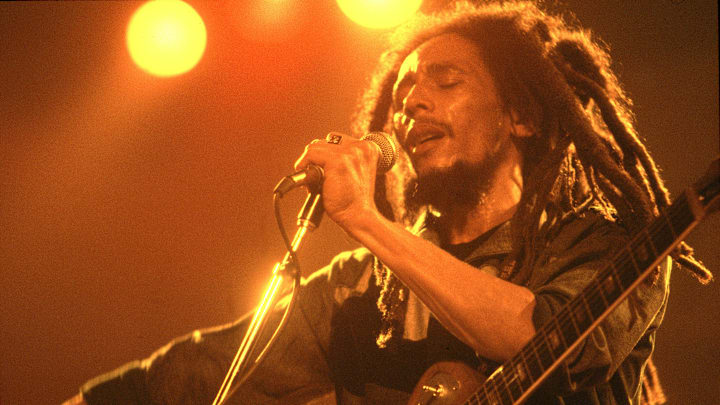“LEGALIZE IT” by Peter Tosh (1976)
We’re leading off with one of reggae’s founding fathers and a definitive statement of purpose. This was the first track on Tosh’s first studio album. The song and the album were both titled “Legalize It.” After a sweet little drum intro, a heavenly choir sings “Legalize it,” and Tosh responds “Don’t criticize it.”
He then takes the listener on an intoxicatingly languid tour of the various names the plant goes by. Later he will offer a rundown of all the different professionals who make a habit of smoking. Finally, he lists many of the medicinal benefits its enthusiasts swear by. It’s anthemic and educational as well.
“POLICE IN HELICOPTER” by John Holt (1983)
Holt begins his song with virtually the same drumbeat that Tosh uses in “Legalize It,” but that’s where the songs part ways. Holt is far more confrontational in his call for legalization. The song describes the government's attempts at cracking down on ganja, and offers this comeback…
“If you continue to burn up the herbs, we gonna burn down the cane fields.” He puts ganja in perspective by saying “We don’t trouble your banana, we don’t trouble your corn, we don’t trouble your pimentos, we don’t trouble you at all." The song maintains the same slinky rhythm that Tosh employed, but this is a much darker call to ending the foolishness.
“THE INTERNATIONAL HERB” by Culture (1979)
Culture hit big in the late ‘70s wave of reggae acts that found homes with labels eager to exploit the new genre. International Herb was released on the short-lived Virgin Record subsidiary Front Line. Far from the confrontation of Holt, or even the argumentative nature of Tosh’s song, Joseph Hill and bandmates, remain entirely positive. Their thesis is that marijuana is not simply a local idiosyncrasy in the Caribbean. It is beloved and utilized all over the world.
Culture itself utilizes a much more upbeat production, with horns and whistles adding to the fun. It’s “good for meditation” and “good for inspiration,” a fact that is equally well-known amongst doctors, scientists, and schoolchildren from the Americas to Africa to Asia. Argue with the thesis if you like, but there is no denying that Culture presents it in a most engaging manner.
